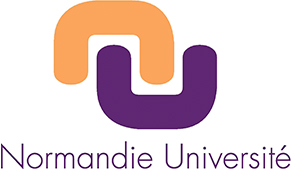Appel à communications : « Régions et régionalisme au Canada : Construire et gérer l’espace politique, social et culturel »
 Colloque international annuel de l’Association française d’études canadiennes (AFEC) à l’université de Caen Normandie.
Colloque international annuel de l’Association française d’études canadiennes (AFEC) à l’université de Caen Normandie.
APPEL À COMMUNICATIONS | CALL FOR PAPERS
Régions et régionalisme au Canada : Construire et gérer l'espace politique, social et culturel.
Parmi les éléments incontournables dans l’étude du Canada figure l’immensité de son territoire. Le Premier ministre canadien William Lyon Mackenzie King avait d’ailleurs remarqué lors d’un discours à la Chambre des Communes en juin 1936 que si certains pays avaient « trop d’histoire », les difficultés pour gouverner le Canada trouvaient leurs origines dans un « excès de géographie ». Appréhender un pays d’une telle superficie a toujours été un défi et, incontestablement, les efforts déployés pour accommoder les différences régionales ont façonné l’histoire politique canadienne et marqué la construction nationale. Au-delà de l’influence de la diversité régionale sur l’histoire politique nationale, ce colloque international pluridisciplinaire cherchera à élargir les questionnements pour aborder la notion de l’intégration sociale et la construction des identités nationales, provinciales, régionales et locales. Lequel de ces niveaux a été le plus pertinent dans la construction d’un véritable sentiment d’appartenance ? Le Canada, tout comme les autres pays occidentaux, subit depuis des années 1980 l’influence de la globalisation, et la prédominance de politiques d’inspiration néolibérale. Des politiques qui cherchent à réduire la capacité des gouvernements à intervenir et à réguler préconisent aussi la décentralisation à l’intérieur des États-nations. Comment cet ensemble d’initiatives a-t-il modifié l’équilibre des pouvoirs, et le sentiment d’appartenance des citoyens au Canada ?
La thématique du colloque – Régions et Régionalisme au Canada– se prête à un large éventail d’approches disciplinaires. Les politologues s’intéresseront, entre autres, à l’interaction et à la concurrence entre différents niveaux de gouvernement au sein du fédéralisme canadien. L’attachement à un territoire étant central pour les peuples autochtones, comment faire évoluer le fédéralisme pour accommoder leurs demandes de gouvernement autonome ? Les historiens sont invités à explorer, par exemple les particularités régionales, et la mise en place d’allégeances politiques et sociales à travers le temps. Les modèles qui confrontent la métropole et l'arrière-pays, connue en anglais sous le nom de Metropolitan-Hinterland Thesis, sont-ils toujours pertinents pour appréhender les forces centripètes/centrifuges en jeu au Canada ou celles de réseau/marge ? Les sociologues et géographes s’intéressent à la construction des identités et des relations sociales dans leurs dimensions spatiales notamment à travers les questions de pouvoir et de justice (parfois déclinée en registres : sociale, spatiale, environnementale…). À une époque où l’adage « Penser globalement, agir localement » est devenu un slogan courant, ce glissement vers le local a-t-il modifié durablement le sentiment d’appartenance sociale et la conception de la citoyenneté ? A-t-il eu un impact sur la question du ou des pouvoirs ? Comment in fine appréhender la construction du territoire dans le contexte canadien ? Quels outils conceptuels pour penser l’ensemble des dimensions sociales, culturelles, politiques qui se cristallisent sur des échelles de référence spatiales ? Comment des notions spatiales de territoire, de région, de nations, etc., issues historiquement des contextes européens, ont-elles (ou doivent-elles être) reconstruites dans les contextes canadiens, notamment au prisme des appartenances (communautés, nations, etc.) ? Comment s’articulent les échelles de référence et notamment la région en fonction des provinces, de leur place dans le système canadien et des projets politiques qui construisent le territoire (place du Québec, revendications autochtones) ? Les organisateurs de ce colloque sollicitent aussi des contributions de spécialistes en littérature et en arts visuels : comment les écrivains canadiens traitent-ils de la notion de la création et de la construction du sentiment d’appartenance ? L’expression artistique de voix régionales a-t-elle été conditionnée par des environnements divers? Quels sont les éléments qui unifient la littérature canadienne au-delà de la diversité régionale ? Y a-t-il des tensions entre les perspectives nationale, provinciale, régionale et locale ? Ces mêmes questions s’appliquent au cinéma canadien, qu’il relève de la fiction ou du documentaire.
Des propositions de communications sont à remettre au comité scientifique via andrew.ives@unicaen.fr avant le 15 septembre 2019. Prière de ne pas dépasser 400 mots et d’y rajouter une courte biographie (100 mots).
Regions and Regionalism in Canada: constructing and managing political, social and cultural territory.
Among the salient features in the study of Canada is the sheer vastness of its territory. Canadian Prime Minister William Lyon Mackenzie King famously remarked in the House of Commons in June 1936 that while some countries may have “too much history,” the difficulties for governing Canada stemmed from the fact that it had “too much geography.” Apprehending a country of this size has always been a challenge and certainly accommodating regional differences has been a central feature in shaping Canadian political history and in building the Canadian nation. Beyond the influence of regional diversity on federal politics, this conference proposes to widen the scope and also raise the question of social integration and the construction of a feeling of belonging. Which level of territorial attachment has been most pertinent in constructing identity in Canada? Canada, like other western democracies, has been subject to the forces of globalization and to neoliberal policy initiatives. These policies have centered on the objective of reducing the power of central governments to intervene and regulate, and have been favorable to decentralization within nation-states. How has this set of policies modified the balance of power and the sense of belonging in Canada?
The conference theme of Regions and Regionalism in Canada lends itself to an array of disciplinary perspectives. For political scientists, the concept of interaction and competition between different divisions of territory raises the question of the vertical separation of powers within Canadian federalism. Canadian indigenous peoples are particularly attached to their traditional territories: how can their demands for selfgovernment be accommodated within Canadian federalism and what impact will this have on regions and regionalism? Historians may wish to explore questions linked to regional particularities, or to study how political and social allegiances have been constructed over the course of time. Are metropolitan/ hinterland models of analysis still pertinent as a means of understanding the centripetal/ centrifugal forces at play in Canada, or interpreting processes of regional marginalization? Sociologists and geographers have long been interested in the question of how a sense of belonging among citizens is constructed and maintained, notably by analyzing the spatial dimension of power and justice. In a contemporary age in which “think globally, act locally” has become a slogan, has the propensity to favour local initiatives resulted in shifting loyalties, has it modified the level at which citizens feel their strongest sense of belonging? Has it altered conceptions of citizenship? Has it had any impact on the locus of power? Which conceptual tools are most pertinent when trying to apprehend the social, cultural and political dimensions of regions and regionalism in Canada? How has the territorial notion of “region”, which comes out of the European tradition, been articulated to adapt to the Canadian context, especially with regard to the question of belonging (communities, nations, etc)? The conference theme will naturally lead researchers to question traditional scales of reference and to think about the functioning of provinces, territories, and regions within the Canadian system, and to analyze how political projects have shaped territory (special status for Quebec, indigenous land claims, etc). The conference organizers welcome contributions from specialists in literature and the visual arts: How do Canadian writers and artists deal with the concept of creating and building a sense of belonging? Has their artistic expression of regional voices been conditioned by their surrounding environments? What are the unifying elements in the diverse, regionalized corpus of Canadian literature? To what extent is there a tension at work between national, provincial, regional, or local perspectives? The same questions apply to specialists of Canadian cinema, in both fiction and documentary.
Propositions may be submitted to the scientific committee via andrew.ives@unicaen.fr by September 15th 2019. Please limit proposals to a maximum of 400 words and add a short personal bio (100 words).
COMITÉ SCIENTIFIQUE | SCIENTIFIC COMMITTEE
Frédéric Boily, Cécile Fouache, Yves Frenette, Hélène Harter, Andrew Ives, Jean-Michel Lacroix, Françoise Le Jeune, Richard Nimijean, Lorie-Anne Rainville, Benoit Raoulx, Martin Simard.





